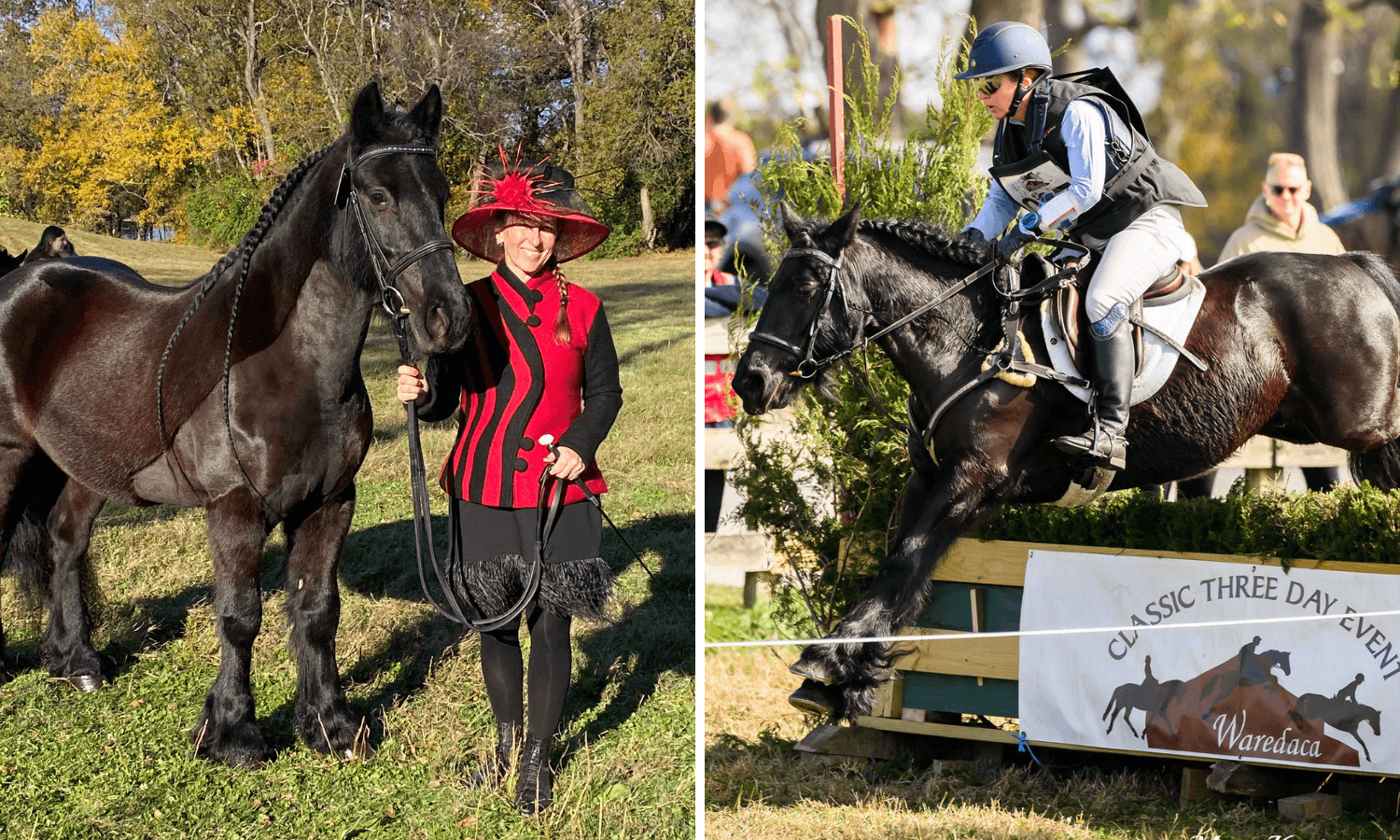USEA Medal Program Recognizes Competition Consistency

USEA Medal Program, founded in 2009, aims to recognize riders who steadily work to hone their skills at the Beginner Novice through Preliminary levels. Medals won are a testament to a high level of proficiency achieved. These are awarded to a rider who finishes three horse trials at a particular level with a final score below a preset requirement (i.e. for a Novice Bronze medal you must finish on a score of a 50 or below). Each of the final scores must be earned at separate locations, and all scores counting toward the medal program must include zero cross-country jump penalties. Competitors must also have a current USEA Membership at the time that scores are achieved.
Members can compete at their own pace, and medals can be earned cumulatively as there are no time or year limitations. It is not solely based on a top placing, but how well one rode amongst the rest of the class, at a variety of venues. Competing at this caliber consistently is an impressive feat for any rider. Medal winner will receive a certificate and lapel pin.
Owners also receive acknowledgment, as the program recognizes the horse’s success separately from the rider. Horses must be registered as required for the level at which it is competing, including at least Limited Registration for Beginner Novice horses. If an application is filed, horses will receive recognition via a certificate mailed to the owner.
Completed applications should be mailed, faxed or emailed to the USEA office. If you have questions about the USEA Medal Program, please contact Michele at [email protected] or 703-779-9890.
Requirements for the USEA Medal Program:
Beginner Novice
o Bronze Medal - Must finish on a score of 50 or less three times - scores must be obtained at two different venues
o Silver Medal - Must finish on a score of 45 or less three times - scores must be obtained at three different venues
o Gold Medal - Must finish on a score of 35 or less three times - scores must be obtained at three different venues
Novice
o Bronze Medal - Must finish on a score of 45 or less three times - scores must be obtained at two different venues
o Silver Medal - Must finish on a score of 40 or less three times - scores must be obtained at three different venues
o Gold Medal - Must finish on a score of 35 or less three times - scores must be obtained at three different venues
Training
o Bronze Medal - Must finish on a score of 50 or less three times - scores must be obtained at three different venues
o Silver Medal - Must finish on a score of 45 or less three times - scores must be obtained at three different venues
o Gold Medal - Must finish on a score of 35 or less three times - scores must be obtained at three different venues
Preliminary
o Bronze Medal - Must finish on a score of 55 or less three times - scores must be obtained at three different venues
o Silver Medal - Must finish on a score of 45 or less three times - scores must be obtained at three different venues
o Gold Medal - Must finish on a score of 40 or less three times - scores must be obtained at three different venues















